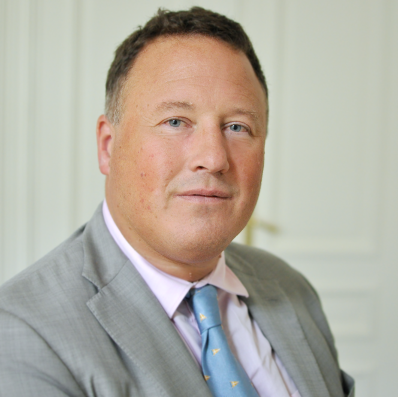The European Health Forum Gastein (EHFG) brings together over 600 leading experts to Gastein Valley in Austria every year. The unparalleled mix of delegates including country and EU-level representatives from the areas of health policy, science, business and industry and patient organisations has developed the forum into an indispensable institution in the area of European health policy.
Cambre associates’ Senior Adviser for Health & Wellbeing practice, Ben Duncan, is at the European Health Forum Gastein. Ben will be bringing you daily updates on the most important debates from the forum in our very first Cambre Gastein Diary.
Gastein Day Two – Overview
- Demographic changes will pose major challenges for European Healthcare systems over the next decade.
- Bigger short-term budget deficits needed to finance the investments into healthcare systems and their long-term sustainability.
- It usually takes policy makers about 5 years to catch up with “smart economic opinion”
- Extending Erasmus offering to the unemployed would provide new skills, self-confidence and employability to young generations.
- Migration is a potential opportunity for European health systems, as many of young migrants can be the health workforce of the future.
Economic policy change needed for sustainable health systems
Day two was when we got to the heart of the demographic challenge facing Europe. The keynote speaker in plenary was a proper hardcore economist: Prof Paul Krugman, Winner of the 2008 Nobel Prize for Economics. His message was that Europe and its healthcare systems face a major challenge over the next decade or so as the ratio of retired people to working people changes. Indeed “the EU, as a whole, is already a zone of declining working-age population.”
Despite the difficult outlook, though, Prof Krugman was optimistic “I argue that the problem of healthcare, which is part of the broader problem of retirement in a demographically changing world, is solvable but it requires more flexible thinking, more disciplined thinking than what we have been seeing so far in our policy discussions” But what does the “flexible thinking” Professor Krugman calls for involve?
Paul Krugman: the case for needed fiscal stimulus is difficult to make to policy makers #EHFG2016 @EFPIA pic.twitter.com/hs5B36gAKt
— Thomas Allvin (@ThomasAllvin) 29 September 2016
At a briefing with journalists, he made clear his view that this means EU countries running bigger budget deficits in the short term to finance the investments needed to make health systems, and pensions systems, sustainable. He conceded that this would mean be a major change of direction for Germany and the Eurozone countries, whose economic policy currently emphasises balanced budgets and reducing government debt. Prof Krugman was nonetheless optimistic “Germany is an obstacle to change but it is not as much of an obstacle as everyone thinks”. German economic policy makers have become a bit more flexible in the past few years, even if their public position has not changed. Moreover, it usually took policy makers about 5 years to catch up with “smart economic opinion”. Prof Krugman started calling for an investment programme to restart the European economy in around 2011. He was hopeful that by 2017 or 2018 policy makers in Europe would come around to his point of view.
Erasmus for the unemployed, not a bad idea?
Prof Helmut Brand, President of the Gastein Forum had a proposal for one priority investment: fund an “Erasmus year” for every unemployed young person in the EU. This would mean funding their travel to an EU country other than their own, where they would study or do work experience. This would improve their skills, self-confidence and employability. It would also make them feel more pro-European.
Though he didn’t say this, one possible inspiration for Prof Brand’s idea on an EU youth mobility programme may be the Young Gasteiners programme that EHFG has been running since 2007, with support from the European Commission and WHO. This gives subsidised access to the Gastein conference to promising young health professionals, along with the possibility to be mentored by some of the senior academics and policy makers attending. In return, the Young Gasteiners help facilitate some conference sessions and acts as rapporteurs on others. 2016 is the 10th year of the Young Gasteiners’ programme and several dozen current or former members of this network were at this year’s conference.
Helmut Brand had these words for them “You are the people who will be running Europe’s health systems in the future. We trust you will do a good job of it. Because we will be the old people you have to look after!”
Migration: opportunity for healthcare systems
Elsewhere in the programme on Day 2, there was a discussion on the impact of migration into the EU. The arrival of hundreds of thousands of relatively young people was seen as a potential opportunity for Europe’s health systems: some of them can be the health workforce of the future. Dr Mojca Gobec, Director-General at the Ministry of Health of Slovenia sounded a note of caution, however: “Migration is an opportunity but we have seen that it is difficult to communicate the positive aspects. It is important to discuss this in a European context.”
Migration is a simple process where we have the chance to benefit from each other. @V_Andriukaitis about #diversity #EHFG2016 @GasteinForum
— Ivana Ivandic (@iivandic) September 30, 2016
The final day of the conference (Friday 30 September) sees the arrival of the European Commissioner for Health, Dr Vytenis Andriukaitis, and Health Ministers from current and future EU Presidencies, Slovakia and Malta, to discuss “Translating Talk into Action”.
